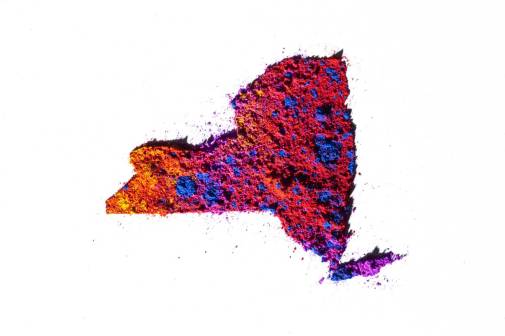Indiana revamped its notary education system with generative AI-crafted content

Indiana recently revamped its online learning program for notaries, and to do so efficiently, the state leaned on generative artificial intelligence for everything from the course scripts to the “actors” teaching the trainings.
The newly updated Notary Education Learning Management System, which is responsible for ensuring the 50,000 notaries across Indiana have access to training and compliance tools, was completely redesigned. Robert Fulk, the chief information officer for the Indiana Secretary of State’s office, who led the effort, said the previous system was complained about often, likely because it was outdated and clunky. In Indiana, notaries are required to complete remedial, yearly and biannual trainings, which Fulk said were long and repetitive — modernization was “drastically needed.”
“It didn’t meet the new kind of micro-content, micro-learning [standards] that people expect. Everybody wants stuff in nuggets now, and it wasn’t accessible,” he continued. “It didn’t meet accessibility standards, as well as usability. So there were just a lot of issues with it.”
To get the job done, Fulk said collaboration was key among the Secretary of State’s Office, Indiana Office of Technology and Indiana Professional Licensing Agency. The state organizations also partnered with Venturit, and Google for its platform and AI integration, which uses Gemini.
Fulk said the technology helped the organizations get the job done quickly.
“We’re leveraging AI to generate a lot of the content, review the content that the instructional designers are creating. And then, of course, the humans in the loop — the instructional designers are reviewing it,” Fulk said. “We’re also using it to generate audio — actual scripted, like interview type of audio. … It’s not as a flat something reading something. It’s actually two really energetic people that are talking about the content and almost being interviewed throughout the content. So it’s really engaging for the learners. And we even used it to generate video. So it’s to generate the instructional content, the audio and video throughout the course, coupled with a virtual instructor that kind of follows you all the way throughout the course, and the AI adapts the course to the learner.”
The new system has already delivered advantages, including an overall reduction in costs by consolidating three old systems and eliminating redundant vendor contracts. Fulk said the system is also more accessible for users with disabilities, is WCAG 2.1 compliant and has reduced the time it takes for notaries to complete their trainings.
“The value AI brings is tremendous,” he said, adding that the work recently garnered his office an award.
Fulk said the Indiana Secretary of State’s Office plans to implement the second phase of the notary project by January, which will incorporate AI into notary licensing and certification.






